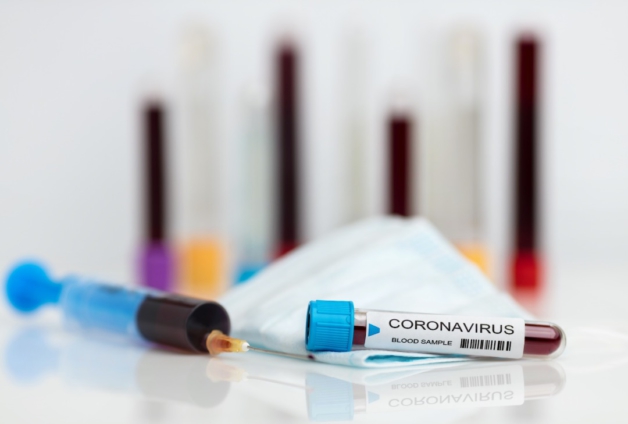A senior research fellow at the Noguchi Memorial Institute of Medical Research has advised that Ghana goes into a "gradual lockdown" following the increasing number of COVID-19 cases in the country.
This move, according to Dr Kofi Boni, must be executed in a way that allows professions that offer very essential services to operate while all other sectors are gradually withdrawn to prevent the spread of the novel coronavirus.
The Ghana Health Service on Friday recorded five new cases of the virus bringing the country’s tally to 16.
However, three of these confirmed cases had no travel history, pointing to the possibility of an ongoing community-level transmission, a situation which poses a worry to Dr Boni as he called for a revision of the case definition.
“If that is the case then now we need to come up with a new case definition. What it means is that we are not going to ask you a question of about travel history again.
"The moment we know that you are coming from an area where somebody is known to be shedding the virus who has not travelled and has been identified as a positive case and you show any of the symptoms you have to be tested,” he said.
The Health Ministry has also predicted a potential increase in cases in the coming days and advised the public to comply with precautionary measures as stipulated by health authorities.
The World Health Organization (WHO) on Wednesday called on countries to test as many patients as possible for the virus.
Acknowledging that Ghana’s healthcare sector may not have the best of facilities to fully implement this directive, Dr Boni believes that the country was doing the best it could.
“Do we have the capacity to test thousands and ten thousands of people?… there will certainly be a time when we will come to our wits ends,” he said.
In light of the potential duplication of cases and the capacity of health facilities to contain the projected spike, the expert advised that a nationwide lockdown must be considered
“I am thinking that there are certain things that we can do, especially at some of the institutions and other working areas, maybe gradually get into a lockdown. We can allow only essential workers to go to work, reduce the number of people going to work and places that will have congregations,” he said.
He further explained that: “It shouldn’t be something abrupt. We should look at essential workers. People who provide us with services, theses will be needed at some point. Maybe electricity, water and all that. They can be going to work and even that one, we can cut down the numbers. Because people are taking public transport, that is the issue.”
The researcher said this measure, coupled with the compliance with the hygiene guidelines outlined by the Health Ministry and WHO, will help mitigate the threat of COVID-19.
Latest Stories
-
“We are not oppressed in our homes” – Hajia Zaliatu Kasim dispels misconception about Muslim women
2 minutes -
ASEPA petitions President Mahama for removal of Auditor General from office
15 minutes -
Idris Elba meets with management and staff of UniMAC’s Institute of Film and Television
41 minutes -
It was a very physical game – Ogum on Berekum Chelsea clash
1 hour -
We have failed to implement adequate measures to effectively tackle galamsey— Daryl Bosu
1 hour -
IMF commences 4th review of Ghana’s bailout programme
2 hours -
Ghana remains important to us ‘no matter what’ – U.S ambassador
2 hours -
Accra floods: Mahama alarmed as GARID projects delay
2 hours -
Teddy Osei of Osibisa fame to be honored with state funeral on April 4
2 hours -
We will begin geotagging and geofencing of excavators from ports – Armah Buah
2 hours -
Kuami Eugene to donate revenue from his rendition of ‘Awoo Mawugné’ to Omar B’s family
2 hours -
IMCC convenes decentralisation sector working group meeting
2 hours -
TGMA Errors and Omissions: Kuami Eugene added as songwriter of Okyeame Kwame’s ‘No Competition’
3 hours -
Regard illegal miners as ‘dangerous terrorists’ – Kofi Buah
3 hours -
GPL 2024/25: ‘Title race not over’ – Heart of Lions boss Bashir Hayford
3 hours

